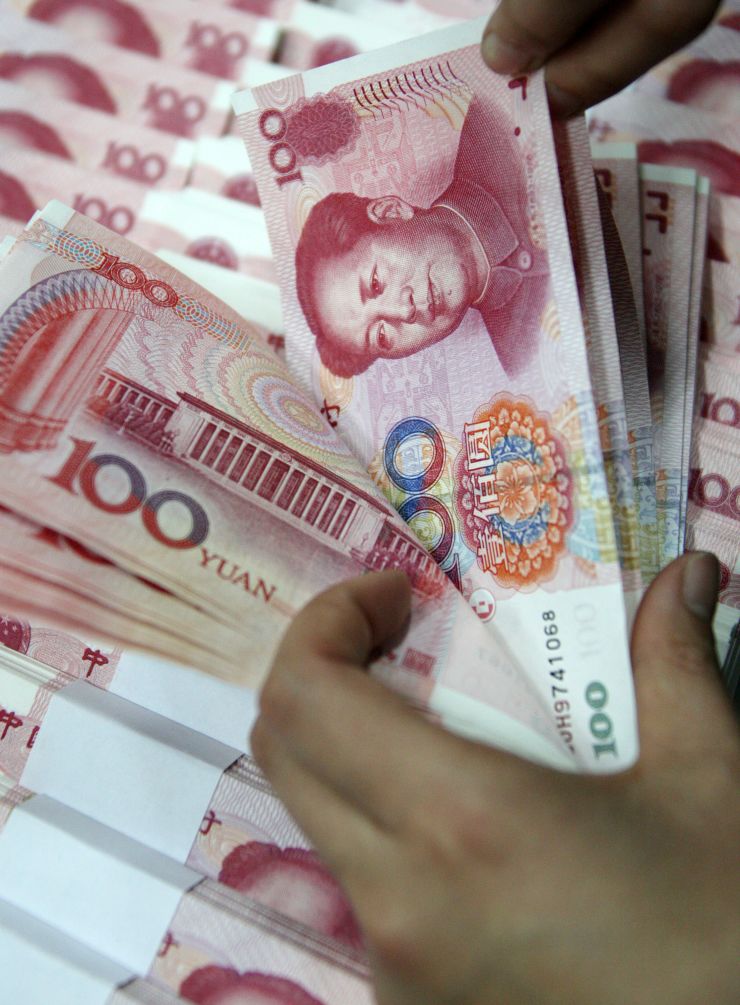
The Chinese yuan crossed a closely watched barrier against the dollar on Monday following another escalation in the trade war between Beijing and Washington.
In the afternoon of Asian trading hours, the onshore Chinese yuan changed hands at 7.0304 against the dollar, while the offshore yuan traded at 7.0807 against the greenback. The Chinese currency last breached the 7 level against the dollar during the global financial crisis in 2008, according to Reuters.
The sharp weakening in the Chinese currency came after U.S. President Donald Trump unexpectedly announced fresh tariffs on Beijing last week that are set to take effect from Sept. 1.
“I think this is clearly a retaliation that in the past China has refrained from doing,” Claudio Piron, co-head of Asia rates and foreign exchange strategy at Bank of America Merrill Lynch Global Research, told CNBC’s “Street Signs” on Monday.
Responding to Trump’s move, China’s foreign ministry said on Friday that the country does not want a trade war with the U.S. but is not afraid of fighting one.
The U.S. and China have been locked in a trade war that has lasted more than a year, with tariffs being placed on billions of dollars worth of each other’s goods. The protracted dispute has dented market sentiment and raised concerns over the outlook for the global economy.
On Monday, the Chinese central bank set the yuan’s midpoint at 6.9225 against the dollar — its weakest level since December 2018, according to Reuters.
Piron said it was Monday’s midpoint fixing of the yuan by the People’s Bank of China that likely “drove” the Chinese currency lower. “The message is: The blessing was ultimately given by the fixing,” he said.
The move to place the fixing “significantly” above 6.9 shows China “likes to be in control of the situation,” Piron said.
For its part, the Chinese central bank said Monday it is confident of being able to keep the yuan basically stable. In a statement published on its website, the central bank largely attributed the losses in the yuan to trade protectionism and tariffs on Chinese goods.
Yuan look ahead
Economists that spoke to CNBC generally advised investors to wait and see further developments on the Chinese yuan’s movements.
“As long as it’s a one-off and everyone sees that as credible, that it’s okay,” David Mann, global chief economist at Standard Chartered Bank, told CNBC’s “Squawk Box” on Monday.
“That’s the critical part,” Mann said. ”(If) that’s seen as credible, then you won’t get as much of the outflow headache and you won’t necessarily get a continuous reaction from other currencies in response.”
“What we really want to keep a look out for … is how this is then interpreted by the U.S. because Trump can always come back with their currency intervention slant on this,” Vishnu Varathan, head of economics and strategy at Mizuho Bank, told CNBC on Monday.
While Trump has in the past accused China of manipulating its currency, his administration has refrained from labeling the country a currency manipulator.
Bank of America Merrill Lynch’s Piron said there are several “recourses” being discussed in the U.S. on the subject of foreign exchange depreciation — such as “attempts by Congressmen to put other bills through Congress … to call for a depreciation of the dollar.”
Such an attempt would largely be futile, he said: “If we go for currency war and we all try to depreciate, it’s a kind of zero-sum game.”





























